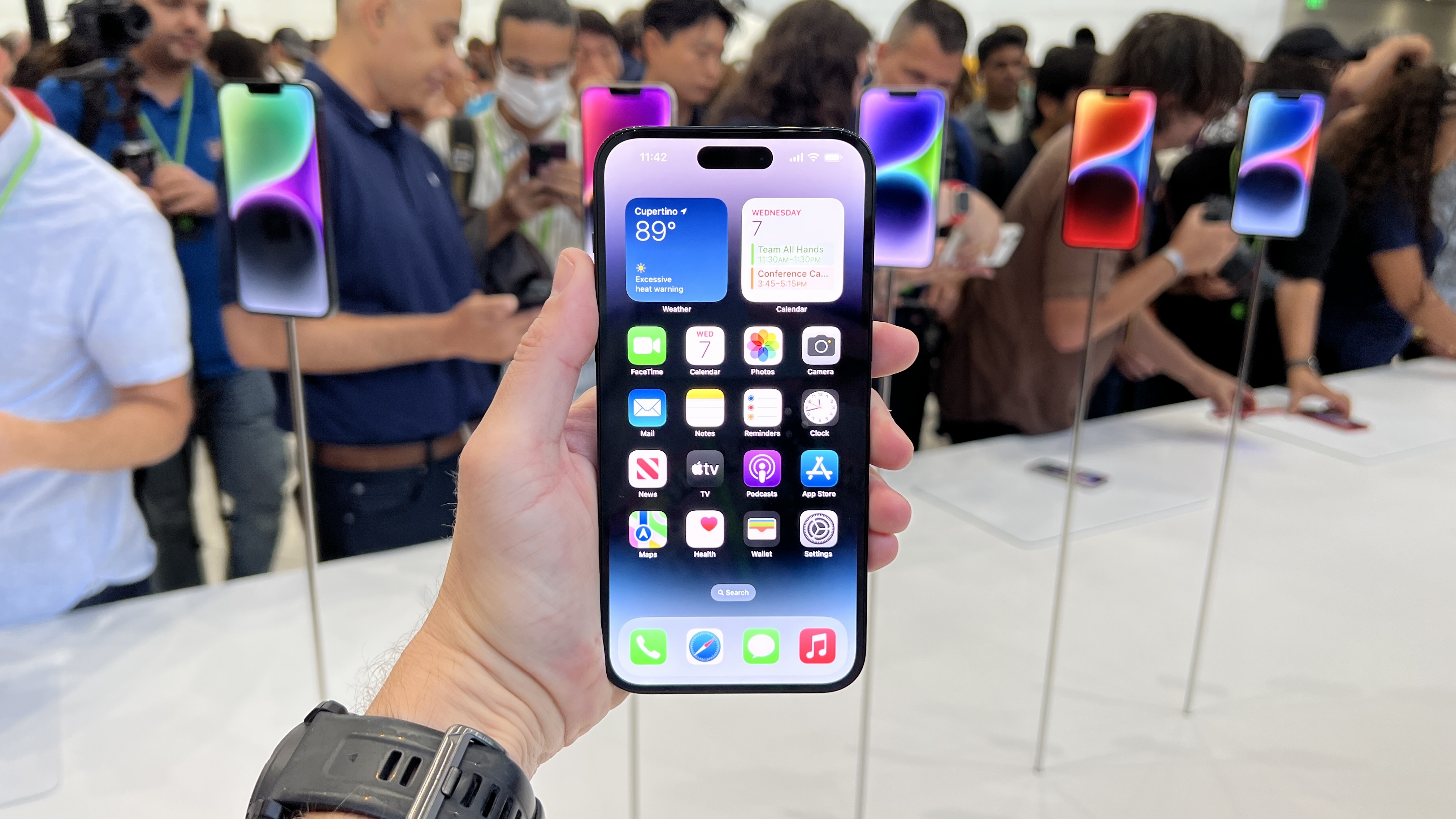iPhone 14 battery capacity shows Apple making a gamble on its specs
A battery capacity downgrade

Apple hasn't historically had a terrific track record with device battery life, as its gadgets like the iPhone, iPad and especially Apple Watch need charging a lot more frequently than some of the competition.
However the company has made efforts to change that in recent years (the iPhone 13 Pro Max battery life offered the best score of any iPhone to date and duked it out with the best phones on offer), and with the iPhone 14 family, it's made a risky gamble.
While Apple doesn't reveal the battery capacity of its devices, instead relying on estimates which often prove head-scratchingly inaccurate, the milliampere-hour figure (which we often use as a source of comparison for phone reviews) generally gets out quickly.
That's happened with the iPhone 14 series, as Apple has listed the capacities with a hazardous materials company called Chemtrec, as spotted by 9to5Mac. Thanks to this, we know the capacity of each member of the family.
Let's start with the base iPhone 14 - this has a 3,279mAh power pack, which is a slight upgrade over the 3,227mAh of the iPhone 13, though one that's so minute that it probably won't lead to a noticeable difference in battery life.
The iPhone 14 Plus has a 4,325mAh battery, and while the lack of an iPhone 13 Plus means we can't compare this with a previous-year model, it's noticeably only 2mAh off the size of the 14 Pro Max, which has the same display size.
Now onto the iPhone 14 Pro, which has a 3,200mAh battery. The iPhone 13 Pro had a 3,095mAh power pack, so this is an upgrade and should convert to a more noticeable difference.
Sign up for breaking news, reviews, opinion, top tech deals, and more.
Finally, the iPhone 14 Pro Max gets a 4,323mAh component, a touch smaller than the 4,352mAh unit from last year. This 29mAh decrease is so small that it's really not worth talking about as an impactful change.
Analysis: Apple betting on itself
So what's that gamble we're talking about?
Well, Apple has increased its battery life estimates for the new iPhones, despite the fact that the capacities themselves have seen a negligible change (and a downgrade, in the case of the Pro Max).
This shows that it's relying on two key factors to lead to a better battery life, beyond the actual capacity: the software and the chipset.
Optimizations in the software - in this case, iOS 16 - and the chipset - Apple's A15 Bionic for the standard and Plus models, and A16 Bionic for the Pro and Pro Max - can eke out extra juice for phones.
By increasing the battery estimates for its new phones, Apple is sending the message that it's confident in the chipset and software to carry the torch where battery increases aren't.
But will the gamble pay off? Well this is Apple, and by controlling its own silicon and software, it's betting that it can gain more than it loses by reducing the battery capacity.
In the case of the iPhone 14 Pro, it's almost certain that it'll last longer than its predecessor as it's got over 100mAh more (3.4%) in there. The iPhone 14 Plus should be fine too, with lower-power components paired with one of the largest battery capacities - although not using the latest chipset.
The iPhone 14 should offer matching battery life, based on software improvements, but again with the older chip we shouldn't expect an increase.
It's the iPhone 14 Pro Max where the biggest question mark resides: that reduction in battery size, however small, puts more pressure on the phone's software capability to eke things out as well as the improved A16 chipset.
But as the battery life degrades over time, will that make a bigger difference to performance? We'll hopefully have reviews of the phones in the near future to find out whether they're lasting even longer than before - that'll be a great indicator of whether Apple was right to sacrifice battery size for more features.

Tom Bedford is a freelance contributor covering tech, entertainment and gaming. Beyond TechRadar, he has bylines on sites including GamesRadar, Digital Trends, WhattoWatch and BGR. From 2019 to 2022 he was on the TechRadar team as the staff writer and then deputy editor for the mobile team.
- Gareth BeavisFormerly Global Editor in Chief